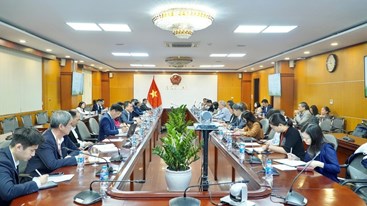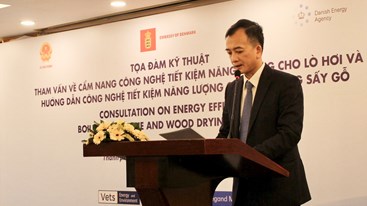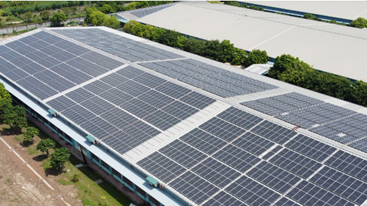On a 1.8-hectare grassy plot of land in a mountainous area, a 15-minute drive from JR Odawara Station in Kanagawa Prefecture, development work is under way on a solar power plant with a design output of 1 megawatt.
The "mega-solar" plant, scheduled for completion in spring next year, is expected to cover the power demands of about 300 households.
The development is being undertaken by Houtoku Energy, a micro electric power company set up late last year in Odawara. Twenty-four local firms, including a "kamaboko" boiled fish paste manufacturer and a taxi operator, financed it with capital of 34 million yen ($341,000).
"We hope to offer 'Odawara-made' energy for the good of the local economy," said Masahiko Shizawa, the 47-year-old vice president of Houtoku Energy.
Plans are under way for cutting the grass and laying solar panels on this plot of land earmarked for a mega-solar power plant in Odawara, Kanagawa Prefecture
Residents and enterprises of local communities across Japan such as Houtoku Energy are rushing to finance and set up their own "micro" electric power companies amid a rise in public awareness of energy issues following the Fukushima nuclear disaster of 2011.
The moves are driven by a mounting public desire to make the most of locally available sources of renewable energy and achieve a self-sufficiency of power, instead of falling back on far-flung nuclear plants.
In Odawara, besides building the mega-solar plant, Houtoku Energy has also joined the city government's "roof loan" project, whereby solar panels are installed on the rooftops of public school buildings. It also plans to bolster its power output capacity by building micro hydroelectric plants.
The Great East Japan Earthquake of March 11, 2011, which triggered the Fukushima nuclear disaster, was the catalyst for the enterprise. Rolling blackouts implemented by Tokyo Electric Power Co., the operator of the crippled Fukushima No. 1 nuclear power plant, dealt a major blow to Odawara's tourism industry. That provided an opportunity for realizing how heavily the city had depended on a power supply that came from nuclear plants in far-flung areas.
Odawara is located near the source of a hypothetical Tokai earthquake, which experts have said could strike at any moment beneath the sea to the south of Japan. Local residents feared they would have to sustain much more inconvenience if such a massive earthquake were to hit so close to home.
Such concerns prompted the Odawara city government to start discussions in earnest in spring last year on ways to stabilize the local power supply through the use of renewable energy sources. It organized joint study sessions with local firms, which culminated in the establishment of the micro power company.
The construction expenses for Houtoku Energy's power plant will be financed by investments, 100,000 yen per share, to be collected from citizens. Twenty-two local electric equipment firms will take it upon themselves to build, manage and operate the plant.
Its power output will be sold to a regional utility under the framework of Japan's feed-in tariff system for renewable energy. Revenue from that sale will be used to deliver local specialty products worth 2,000 yen to each investor, which amounts to a dividend of 2 percent on investment money.
Houtoku Energy will be entitled to sell its power output directly to local households once all regulations are hopefully lifted some time around 2016 in the power retailing sector. The company's goal is to materialize local production for the local consumption of electric power.
Residents and enterprises in more than 10 local communities across Japan are moving to set up their own micro electric power companies. While the Satsuma Shizen Energy company was set up in spring last year in Kagoshima Prefecture, preparations are under way to establish an Aizu electric power company in Fukushima Prefecture.
The feed-in tariff system for renewable energy, which was introduced last summer, has made it easier for small power companies to maintain their businesses. Utilities must purchase renewable energy generated by these companies at fixed rates that will power homes and businesses through their networks. So, these power companies can count on a stable source of revenue from the sale of solar and other power over a period of 15-20 years.
The city government of Odawara is not the only one in Japan that is pushing similar initiatives in their local communities.
In the spring, the government of Iida, Nagano Prefecture, passed an ordinance for a "sustainable community-building" that is aimed at both promoting the use of renewable energy and helping the local economy. The city government provides financial and other support to development programs led by local residents.
The initiatives in Iida have a longer history, which dates to well before the Fukushima disaster. The moves, with a local firm called Ohisama Shinpo Energy as the main driver, have helped open more than 290 micro electric power stations during the past 10 years.
The city government hopes the new ordinance will give an additional push to that trend and the spread of renewable energy.
Setting up micro electric power companies will "serve as a catalyst for raising awareness among local residents about how they could change their own communities for the better," said Noriaki Yamashita, a senior researcher for the nonprofit Institute for Sustainable Energy Policies.









.jpg?w=367&h=206&mode=crop) Energy efficiency and conservation usage is an important aspect of the national energy development strategy
05/03/2024
Energy efficiency and conservation usage is an important aspect of the national energy development strategy
05/03/2024
 Challenges and Opportunities to promote energy efficiency market in Vietnam
Challenges and Opportunities to promote energy efficiency market in Vietnam
 The Ministry of Industry and Trade requests government agencies to coordinate in organizing Earth Hour 2024
The Ministry of Industry and Trade requests government agencies to coordinate in organizing Earth Hour 2024
 Consultation on Energy Efficiency Boiler Catalogue and Wood Drying Guideline
Consultation on Energy Efficiency Boiler Catalogue and Wood Drying Guideline
.png?w=367&h=206&mode=crop) Request for expression of interest - C2.1.13: Capacity Building on energy efficiency policies development
Request for expression of interest - C2.1.13: Capacity Building on energy efficiency policies development
 Son Ha Co., Ltd, applies energy efficiency and conservation measures
Son Ha Co., Ltd, applies energy efficiency and conservation measures
 Phuc Kien Co., Ltd., is effectively implementing energy-saving measures
Phuc Kien Co., Ltd., is effectively implementing energy-saving measures
 Request for expression of interest - C2.1.12: Independent monitoring of safeguards implementation
Request for expression of interest - C2.1.12: Independent monitoring of safeguards implementation